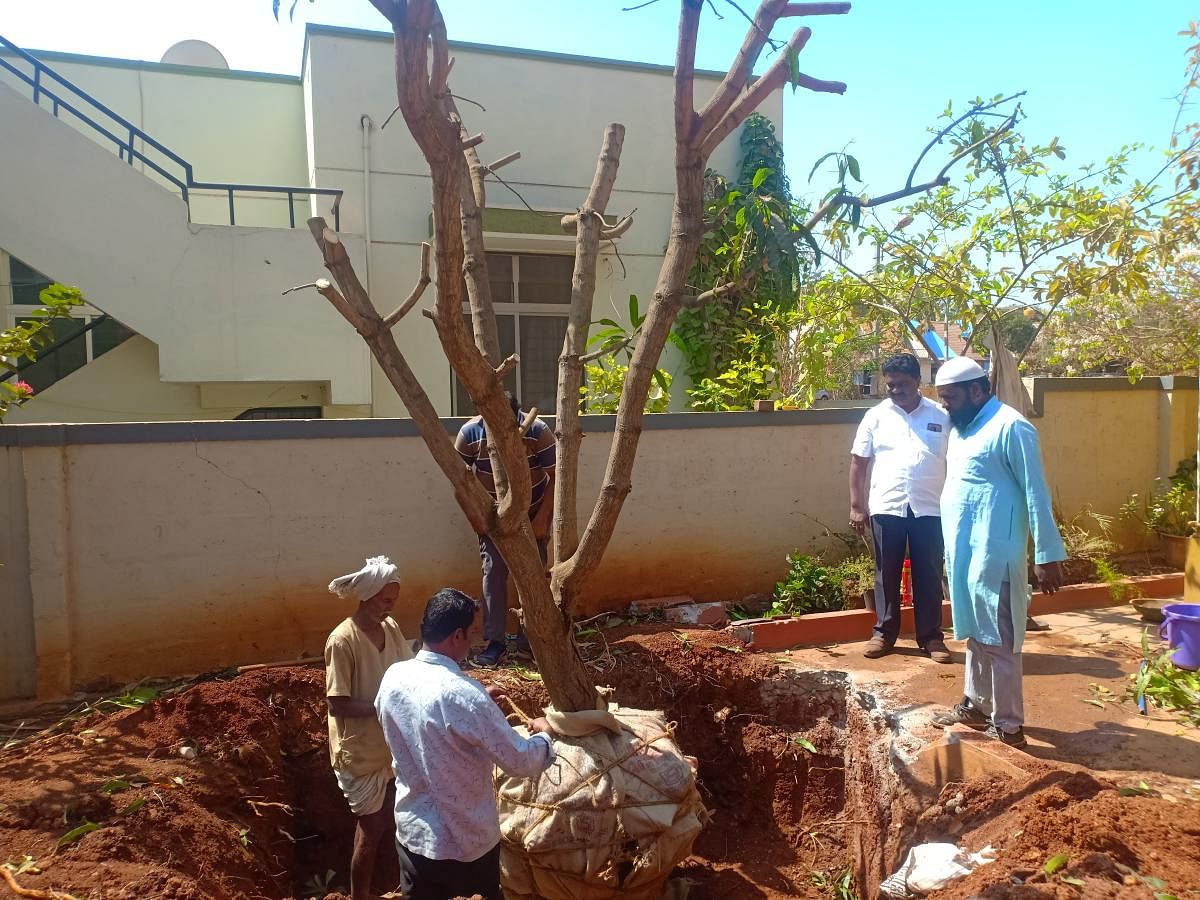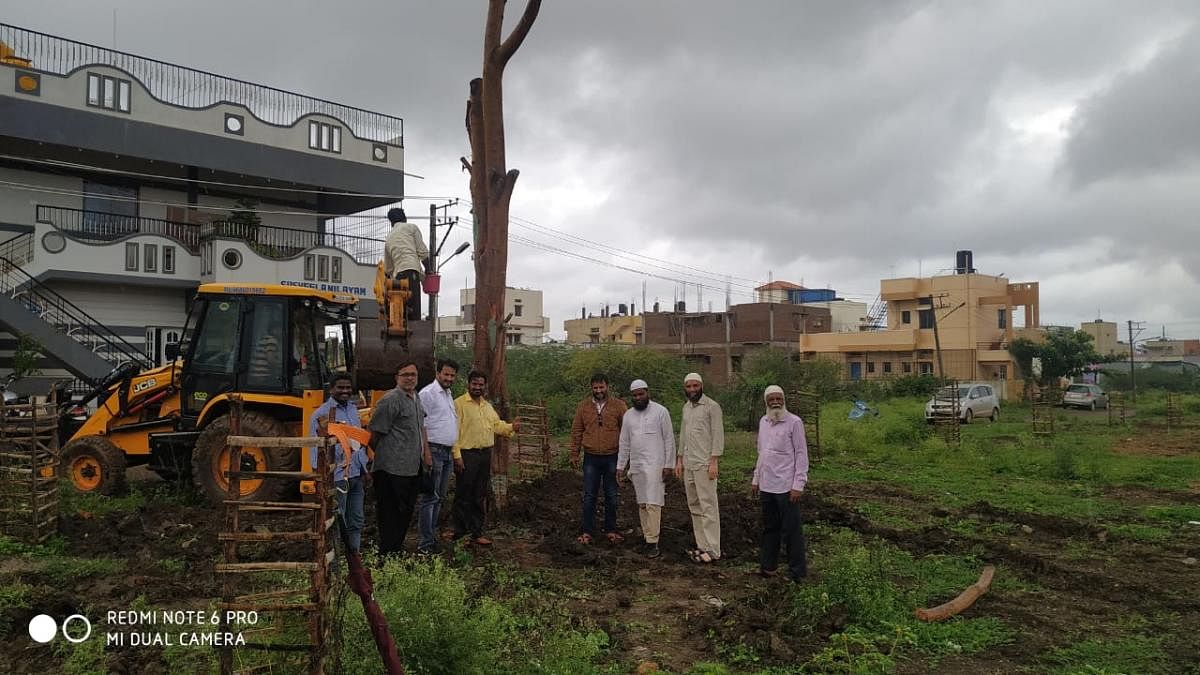

Now it’s as if everything is meant for human beings; it’s as if what doesn’t fetch money doesn’t have the right to exist, including our work. But it’s nothing to lose hope about,” assures Aslamjahan Abbihal, the most sought-after lifesaver from Dharwad.
Aslamjahan is speaking about trees — most of them marked to face the axe at the altar of civic development — and his love for translocating them.
Since 2012, he and his team have given a new lease of life to 155 trees (including mango, jackfruit, guava, sandalwood, teak, coconut, raintree, banana, tamarind, banyan and peepul) in Dharwad, Gadag, Bagalkot and Belagavi districts.
Some of the trees are five decades old! And 95 percent of them have survived the move.
Tree translocation is a scientific process in which a tree is uprooted as a whole and replanted at a different location. It’s meant to aid urbanisation without destroying the existing greenery.
The prep
Every Sunday, Aslamjahan and his team of 10 survey spaces for tree translocation and identify trees to be moved on priority.
They coordinate with various government departments and seek their cooperation and permission.
They have many rounds of talks with locality leaders about the tree’s new home.
A tree has to be uprooted with least damage. To ensure there’s constant food supply to the tree, roots have to be laced with nutrients.
Branches have to be cut just enough so the tree fits on the transportation vehicle.
The shifting happens over two days if the tree trunk is more than 2-3 m in diameter. Tree trunks with more girth are moved over seven days.
Aslamjahan supervises the work at every level. The team waits until he gives them a go-ahead.
He operates from two places at once to ensure a tree’s life. He factors in traffic, electricity wires and road space before the chassis vehicle/crane can carry the tree. He is judicious to not waste manpower.
Summer is the best season for translocation, says Aslamjahan. As for off-season translocation, time is of essence and care is taken to protect the roots by smearing them with preservatives like bordo paste and blitox.
“I’ve tried relocating trees in winter. Survival chances are less,” recalls Aslamjahan. On the other side, the effort is complete when people come forward to adopt the tree and care for it as it requires almost three months to re-sprout. This requires soil condition to be favourable as well. If needed, extra fertilisers can be fed to the soil.
Rooted in home
Aslamjahan’s story with tree translocation started in his own backyard. His father, Mohommadsab (69), a civil contractor, aced in gardening and growing bonsai trees.
While building their new house in Dharwad, Mohommadsab had to make a decision: cut down a coconut tree and a lemon plant or move them. The father chose the latter and successfully translocated them.
Young Aslam was motivated enough by this and began to learn the skills.
Projects followed for Aslam. He translocated five trees planted by the NH4 Highway in Dharwad, after coordinating with the then deputy commissioner of Dharwad, Darpan Jain. He then translocated 69 Alphonso mango trees by coordinating with Hubli-Dharwad Urban Development Authority Chairman Lingaraj Patil, and Hubballi-Dharwad Nagarika Parisar Samiti Chairman Shankar Kumbi. A total of 65 trees have survived.
Call of passion
“Urban planning should set aside at least a few lakhs for saving the green cover of a project area and, if necessary, translocation of trees. This has been a missing link for almost two decades. So we are losing greenery,” Aslamjahan reasons.
As a measure of goodness, planting of saplings has now gained momentum under various government schemes. Equally important is rearing them as well as conserving older trees of the region, which enables dendrochronology, the study of tree rings, shares the tree whisperer. For Aslamjahan, who owns a private water-proofing business, translocating trees is about passion and caring.
Although it’s not his full-time job, he springs into action as soon as gets a call. Weekends and holidays are also busy days for him. While most of the times, he spends money from his pocket, monetary support comes from his close circles. He prefers to bear transportation cost and accepts money to pay for labour.
Aslamjahan Abbihal can be contacted on 9901209221.